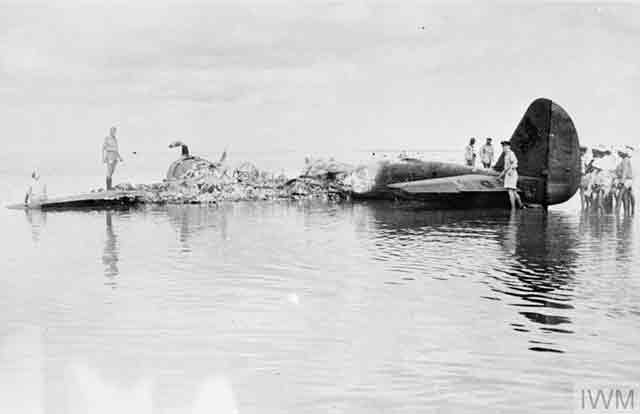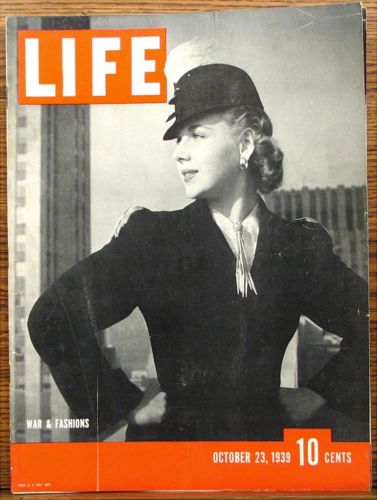Wednesday 10 September 1941
Today, Guderian's armor shakes off the Russian attacks and breaks loose to the southeast again. His forces take Konotop, cutting the main road from Kyiv to the east. Even further south, General Walter Model's 3rd Panzer Division of XXIV Army Corps (motorized) takes Romny. The grand plan is starting to come together
Curiously, there are no attacks against [Guderian's] east flank. Perhaps this has something to do with the extensive railroad demolitions by our air efforts. On the defensive front, the danger zones west of Bryansk and east of Smolensk stand out as never before, but temporarily at least there is a lull in the attacks Nevertheless, resumption of the attacks must be imminent in view of the railroad movements from Moscow or Tula to Bryansk, and of the very heavy motorized movement toward Smolensk.Today is usually marked as the end of the battle of Smolensk. Operation Barbarossa was supposed to go like this all along, so Halder's skepticism is a sign of how different the reality has been.
This sudden fortuitous change in events seems to confirm Hitler's recent interference in Guderian's dispositions, which adds to his growing confidence in his own military judgment. These affirmations of Hitler's amateurish interference have long-term consequences.
Not only is Guderian suddenly breaking out, but there are good signs for the Wehrmacht elsewhere as well. A couple of hundred miles to the south, General Ewald von Kleist's Panzer Group 1 also breaks out from its bridgehead across the Dneipr at Kremenchuk. Soviet 38th Army counterattacks Kleist's panzers ineffectively.
A quick glance at the map shows the extreme peril of the massive Soviet troop concentration holding Kyiv that is led by Marshal Budyenny. Hard-pressed by German Sixth Army's frontal assault, the Soviets holding the city now face encirclement a hundred miles to the east. This area of Ukraine is an excellent tank area for tank movements, with flat plains and relatively few waterways. While Kleist's and Guderian's panzers are far apart on the map, they theoretically could meet within only a few days. The noose around Kyiv is tightening, and all of the military professionals on both sides can see it.
 |
| "RAF officers inspect the wreckage of a Junkers Ju 88 lying in the waters of the Suez Canal after being shot down by an RAF night fighter near Kantara on the night of 9/10 September 1941." (© IWM (CM 1309)). |
The enemy tank group has penetrated to Romny and Gaivoron. The 21st and 40th Armies are not able to liquidate this group. They request that forces be immediately transferred from the Kiev Fortified Region to the path of the enemy advance and a general withdrawal of front forces.Kirponos has a good grasp of the situation and is a competent commander. Among other things, he took the prospects of a German invasion seriously on the eve of Operation Barbarossa and managed to keep his forces in better shape than other frontier commanders. However, in Moscow, Kirponos, despite his proven success, is seen as a bit of a weak figure, someone without the true offensive spirit. That Kirponos urges a tactical focus on the defensive again is seen as just another sign of his lack of intestinal fortitude. The Stavka ignores him.
 |
| Soviet troops under artillery fire in western Ukraine, 1941. |
Norway: The German occupation government declares martial law in Oslo today due to a labor strike by shipyard workers. The workers were upset that their milk rations were ended. This was the famous "Milk Strike." The authorities arrest five labor activists and shoot two of them, lawyer and Communist Viggo Hansteen and labor activist Rolf Wickstrom. There is a monumental joint tombstone and memorial to them in Oslo.
September 1941
September 1, 1941: Two Years In
September 2, 1941: Germans Pushed Back at Yelnya
September 3, 1941: FDR Refuses to Meet with Japanese
September 4, 1941: Hitler Furious at Guderian
September 5, 1941: Germans Evacuate Yelnya
September 6, 1941: Japan Prepares for War
September 7, 1941: Hitler Orders Drive on Moscow
September 8, 1941: Leningrad Cut Off
September 9, 1941: Germans Attack Leningrad
September 10, 1941: Guderian Busts Loose
September 11, 1941: Convoy SC-42 Destruction
September 12, 1941: Starve Leningrad!
September 13, 1941: Zhukov at Leningrad
September 14, 1941: Germany's Growing Casualties
September 15, 1941: Sorge Warns Stalin Again
September 16, 1941: Soviets Encircled at Kiev
September 17, 1941: Iran Conquest Completed
September 18, 1941: Focke-Wulf Fw 190 in Action
September 19, 1941: Germans Take Kiev
September 20, 1941: Death at Kiev
September 21, 1941: Raging Soviet Paranoia
September 22, 1941: Defense of Nickel Mines
September 23, 1941: Air Attacks on Leningrad
September 24, 1941: Japanese Spying Intensifies
September 25, 1941: Manstein at the Crimea
September 26, 1941: Kiev Pocket Eliminated
September 27, 1941: Massacre at Eišiškės
September 28, 1941: Ted Williams Hits .400
September 29, 1941: Babi Yar Massacre
September 30, 1941: Operation Typhoon Begins
2020









